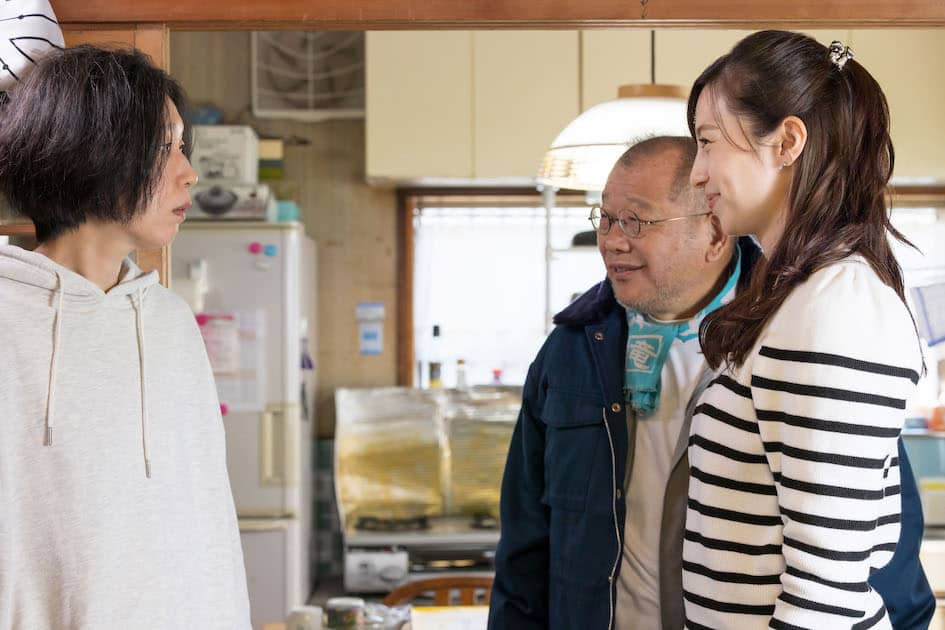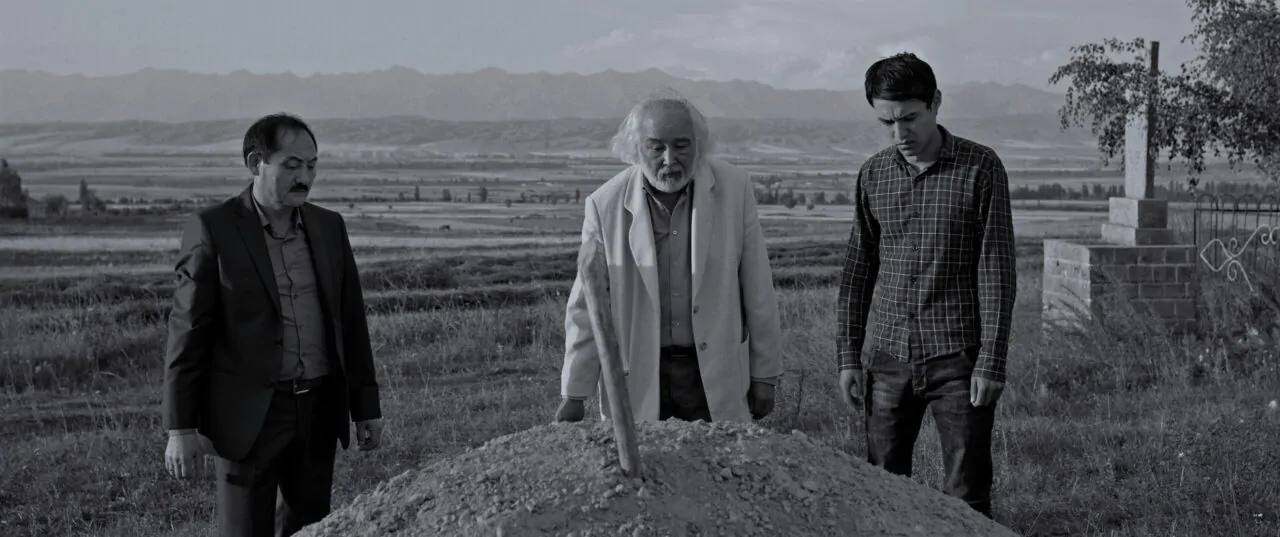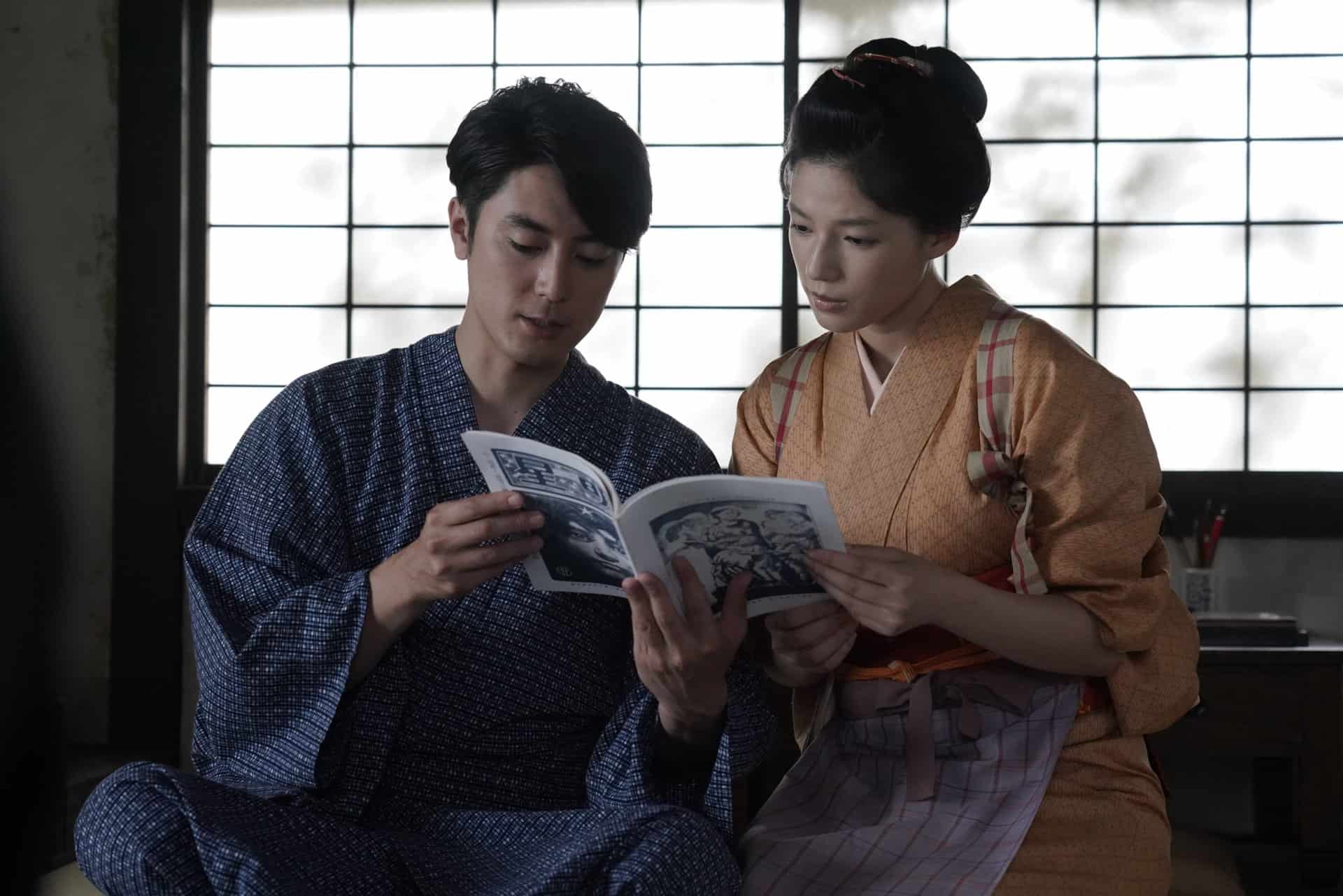Considering the sheer number of family dramas coming from Japan, most of which seem to be of the 7/10 variety, it is quite hard to find ones that stand out, even in detail. Kazuhiro Nakamura, however, who was inspired by the city of his birth and the “Amagasaki lock gate,” which protects from flood damage, seems to have managed to come up with a film in the category that does stand out, even if he does not avoid all its ‘tropes'.
Amalock is screening at Osaka Asian Film Festival

The film starts in 1994 when a young and quite loud Yuko is living with her parents in Amagasaki, somewhat idolizing her father, Ryutaro, owner of a small metalworks factory, which she considers Amalock, a kind of protector of everything and everyone around him. Years later, 39-year-old Yuko is a high-achieving and proud woman whose career ambitions have taken to Tokyo, where she has a high-caliber work. However, her “high standards” and her inability to deal with anyone who does not abide by them, lead her to mistreat her juniors, with her attitude eventually having her fired.
Not being able to sustain her life in Tokyo, she returns to Amagasaki to live with her father, who welcomes her with open arms, since his wife has died many years ago. Yuko, however, is rather depressed and soon turns into a kind of hikikomori, essentially stuck in her situation without being able to do anything to change it. Things become even worse for her when her father announces that he is getting remarried to Saki, a 20-year-old who soon moves into the house, and is set on pushing Yuko out of her depression. Expectedly, the clash is inevitable and Ryutaro desperately tries to keep the two women from each other.
Despite the comedic base of the story, Kazuhiro Nakamura shoots a movie that manages to make a plethora of rather serious comments, focusing on a number of aspects of life, with each of the three protagonists being implemented as their medium. Yuko, for example, highlights how being a perfectionist can cause problems in the work environment, particularly when this kind of attitude comes from a woman. That she has to return to her hometown, in a decision that is considered as admittance of failure, makes another comment regarding the moving from a small town to Tokyo and the difficulties a deed like that presents. Her becoming a hikikomori due to her depression sheds light to the particular phenomenon, while how difficult relationships are these days, particular for people who are not exactly young, is also showcased through her.
Her antithesis with the always cheerful but somewhat naive ‘step-mother' is definitely hilarious, but Saki also shows how, sometimes, having this kind of attitude can actually lead someone to be truly happy. At the same time, and as her past and her family issues are revealed, the reasons behind choosing a 70-year-old man to be her husband are also presented, in another comment regarding these types of relationships. The whole narrative, after her appearance, could easily become a silly situational comedy, but the aforementioned aspect, Yuko's circumstances, and a number of rather dramatic twists prevent the movie from becoming so, with Nakamura retaining a very appealing and entertaining balance between comedy and drama throughout the movie. Lastly, Saki's attitude towards Yuko provides another comment regarding how people can help those with depression, including hikikomori, with the former's patience and insistence being the key here.
Also always cheerful Ryutaro offers another set of comments. The way he leads his business, not through his expertise or his hard-work but due to his character and the respect and care he shows for his employees, who seem to cherish him as family members, is the most central one deriving from him. That his attitude is completely opposite than the one his daughter exhibited in her line of work, and the opposite paths their professional life took due to the fact, offers yet another comment. Lastly, his attitude towards the friction in the house and his handling of his two women, with patience, understanding, and always a smile, provides another solution to a rather difficult issue. Granted, the combination of all the aforementioned do seem somewhat idyllic, but in general, they appear realistic to a point and work for the narrative, also due to the inclusion of the aforementioned drama.
Lastly, the way her interactions with her father and his wife change Yuko, who finally realizes her responsibilities and matures, provide a very entertaining coming-of-age aspect, which also works nicely here.
The acting is definitely one of the best traits of the movie, benefitting the presentation of all the comments here to the fullest. Noriko Eguchi as Yuko highlights her transformations realistically, and mostly with a sense of measure, with the way her fighting with Saki eventually turns to something completely different being rather entertaining to watch. This aspect also owes a lot to Ayami Nakajo who plays the former with a constant cheerfulness that provides a very appealing antithesis to Eguchi's role, while the chemistry of the two, and the way it transforms, is among the best traits of the film. Tsurube Shofukutei as Ryutaro is as pleasant to watch as always, with his smile and overall kind-hearted demeanor filling the screen every time he appears on it.
Teruo Seki's cinematography is expectedly bright and shiny, even if some dark moments, particularly regarding Yuko's mental state do appear, while the slight tour guide of the city element works well in visual terms. Ken Memita's editing results in a relatively fast pace that benefits the film but as usual, some lagging close to the end does exist, unnecessarily prolonging the movie which reaches the two hours mark.
Apart from this, however, “Amalock” emerges as an excellent family drama/comedy, which manages to present its many and rather interesting comments eloquently, while remaining entertaining almost from beginning to end.
















